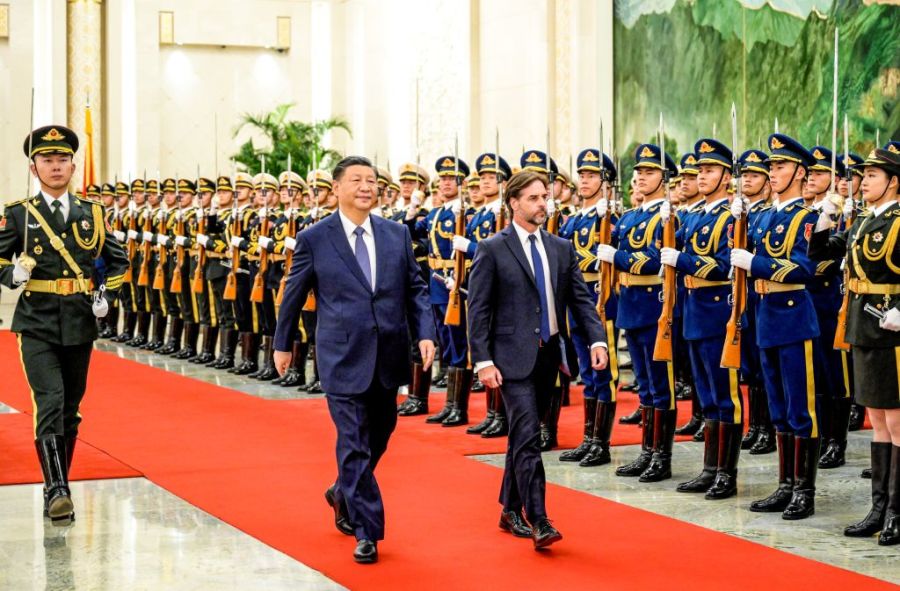
The Chinese Communist Party (CCP) is undertaking a new and troubling bullying campaign. This time, they are targeting our neighbors in South America with strategic initiatives that have major economic and national security implications for the United States and my home state of California. The United States cannot sit idly by while a strategic adversary like the CCP expands its political and economic influence over countries in our backyard at the expense of U.S. strategic goals.
In Peru, for example, the CCP is using the Belt and Road Initiative (BRI) to build a port they call “the gateway from South America to Asia.” This new port could be partly operational by the end of the year. Not only will this give the CCP a troubling level of new influence in our hemisphere, but it will also be a direct competitor to the ports of Los Angeles and Long Beach, which are currently the top ports for imports.
In September, I wrote a letter to President Biden explaining the dangerous nature of a recent vote by the Central American Parliament (PARLACEN) to expel Taiwan from its role as a permanent observer. I cautioned President Biden that it will take bipartisan leadership to stop the decline of U.S. influence in Central and South America and invited him to join my bipartisan effort to strengthen our trade relationships and secure supply chains. My offer to the president still stands. Improving economic relations and protecting our trade systems from foreign adversaries are too important for partisanship.
The CCP is using state-owned enterprises to take over supply chains and cut off our influence across South America. In 2021, these companies invested $11.3 billion on energy and infrastructure projects across the continent. These investments are giving the CCP increasing control of global supply chains and critical minerals that are essential to innovation.
The CCP isn’t making these investments out of the goodness of their hearts. They’re doing it to serve their own interests. There are countless accounts of the CCP employing forced labor — including children — to mine critical minerals. These same minerals are being sold in electric batteries around the world. The CCP is also turning a blind eye to environmental standards that is having negative impacts within China and across the world — especially in BRI countries. Recently a major landslide in a tunnel at the Prue Port left residents and local fishing industries worried about their community and way of life. Make no mistake, the CCP’s disregard for international standards is to blame for this disaster.
Americas Partnership for Economic Prosperity (APEP), which was set up by President Biden, is designed to provide a new framework for economic partnership in the Americas. Like the Indo-Pacific Economic Framework (IPEF), these new efforts lack meaningful advancement and trade pillars necessary to bring real economic investment to the region.
As a member of the House Ways and Means Committee and the Select Committee on the CCP, I know there is bipartisan leadership in Congress who stand ready to revive trade and increase U.S. engagement in the Western Hemisphere to ensure regional peace and stability. This bipartisan leadership was on display last year when Congress overwhelmingly passed the United States-Taiwan Initiative on 21st-Century Trade First Agreement Implementation Act.
Unfortunately, the current administration has not shown such leadership. In fact, the president’s policies and lack of direction send mixed messages to our enemies and our allies alike, risking even further lost ground to the CCP. A course correction is possible, but it requires engagement from this president.
I urge the Biden administration to work with Congress to build on our successes in this area and address the serious threats we still face.
Michelle Steel represents California’s 45th District in the House of Representatives. She is a member of the Ways and Means Committee and the Selected Committee on the Strategic Competition Between the United States and the Chinese Communist Party.














